Dorje's Rob Chapman: the 10 records that changed my life
The albums that inspired The Monkey Lord
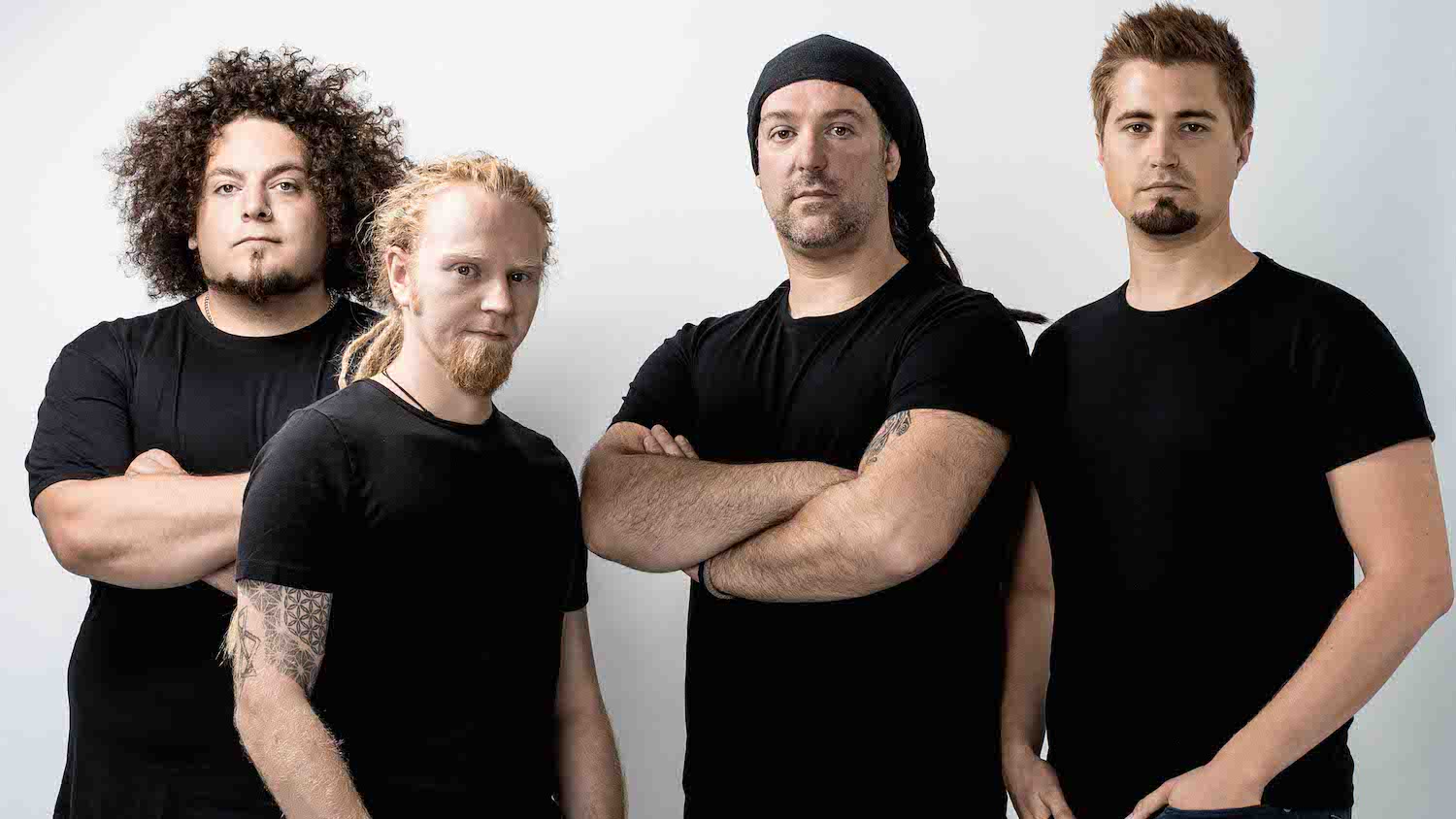
Introduction
Whether you know him as the guitarist for Dorje or as YouTube sensation Chappers, Rob Chapman has more than made his mark on the world of guitar, but as his playing attests, his musical origins are varied, to say the least.
“Thinking back to when I first became 'musically aware', it's pretty funny,” Rob recalls.
“I would spend hours on my knees going through my parents' vinyl collection, mostly things like Tina Turner, Paul Simon and Hot Chocolate, but there were a few absolute classics like The Rolling Stones and The Beatles.
“Among the throng of early-80s pop and an overabundance of Beefheart were a couple of albums that actually completely changed my life.”
These influences – among many more – can be heard on Dorje's new EP, Catalyst, which the band will be performing live across the UK on their upcoming November/December headline tour, and Rob is certainly grateful his musical awakening came when it did.
“This music helped to turn me into who I am now – I count myself as very lucky to have been born at a time when these amazing bands were accessible,” he says.
“There were so many more, of course, but I'm just glad I found the inspiration I needed to give me the drive to endure the bullshit that you have to go through as a musician trying to make a living in the 20th century. Thanks, music!”
On the following pages, Rob reveals the 10 records that changed his life.
Dorje's new EP, Catalyst, is out now, and the band's UK tour begins on 21 November in Southampton – head over to the band's website for full dates.
Don't Miss
Chapman Guitars ML-1 Pro review
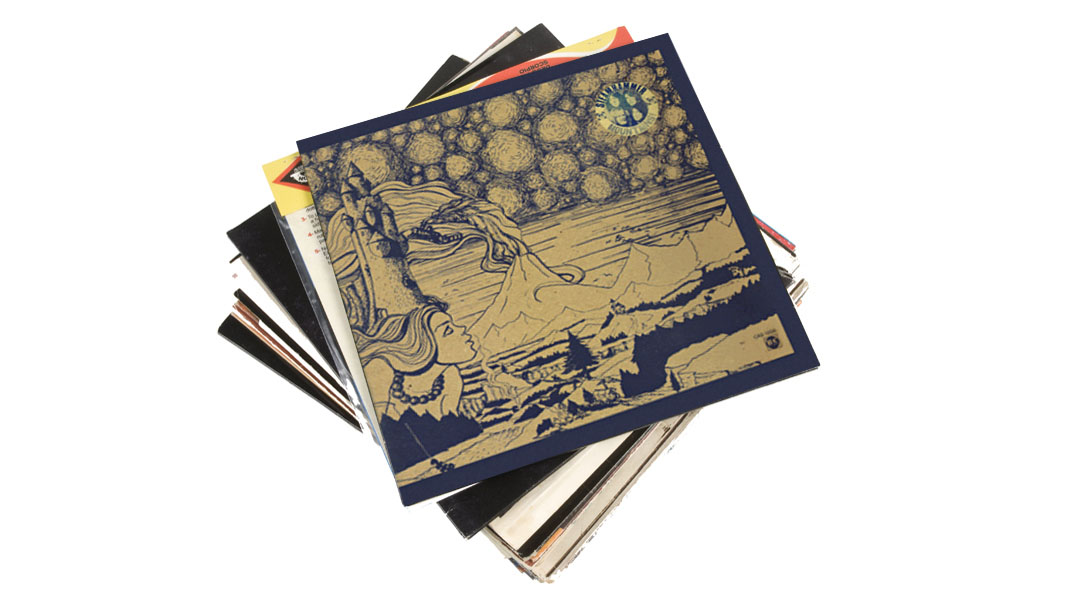
1. Steamhammer - Mountains (1970)
“The first time I ever heard a guitar 'riff' and just couldn't get it out of my head was on an old Steamhammer album of my parents called Mountains.
“There's a track on that album called Riding On The L&N, and man, the opening riff just completely blew my mind. I used to almost have a ritual where I would take the vinyl out of its sleeve, smell it and the hairs on my skinny little arms would stand up in anticipation of that one riff.
“I think it's also the first time I ever heard an extended 70s-style solo played by the legendary Martin Pugh. I'll never forget that at the beginning of the solo he plays a series of bends, each one with a slightly different feel, and the last one with this sick, almost Kossoff-type vibrato.”
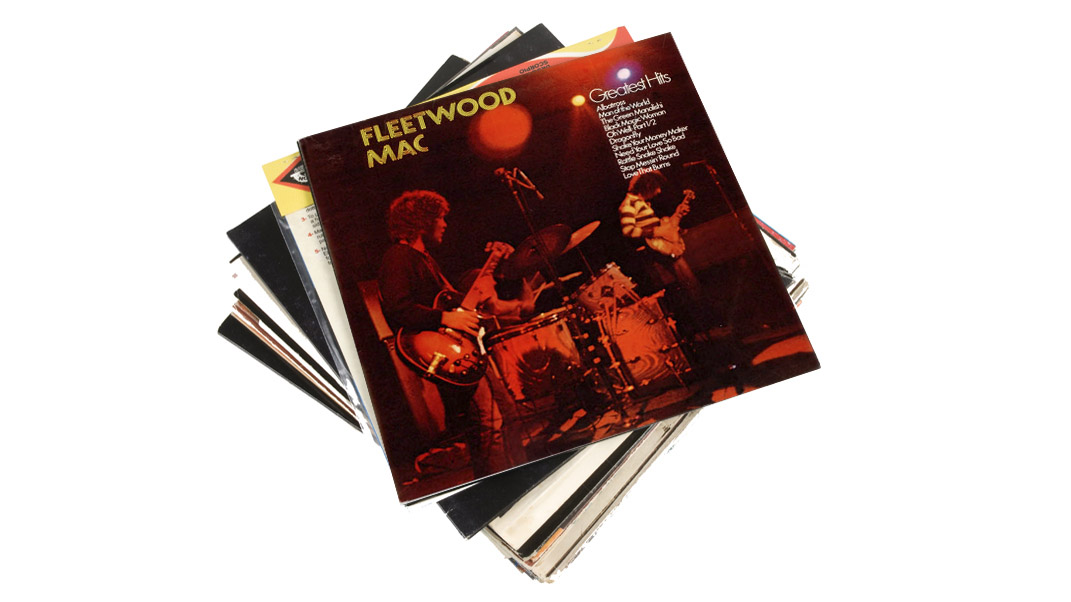
2. Fleetwood Mac - Greatest Hits (1971)
“Okay, this album was basically the reason I became a guitarist – my dad had it on cassette tape in his car, and whenever we went anywhere, we would put it on and listen to tracks like Man Of The World or The Green Manalishi.
“I mean, every track on that album is incredible; it's all killer no filler from start to end, and I was completely hooked by Peter Green's vocabulary, sensitivity, touch but, above all, tone.
“I think, to be honest, a lot of the lead playing I liked was probably Danny Kirwan, but at the time I didn't even know the names of the band members other than Peter Green. The one track on that album that always just ruined me was Dragon Fly: so beautiful and utterly musical.”
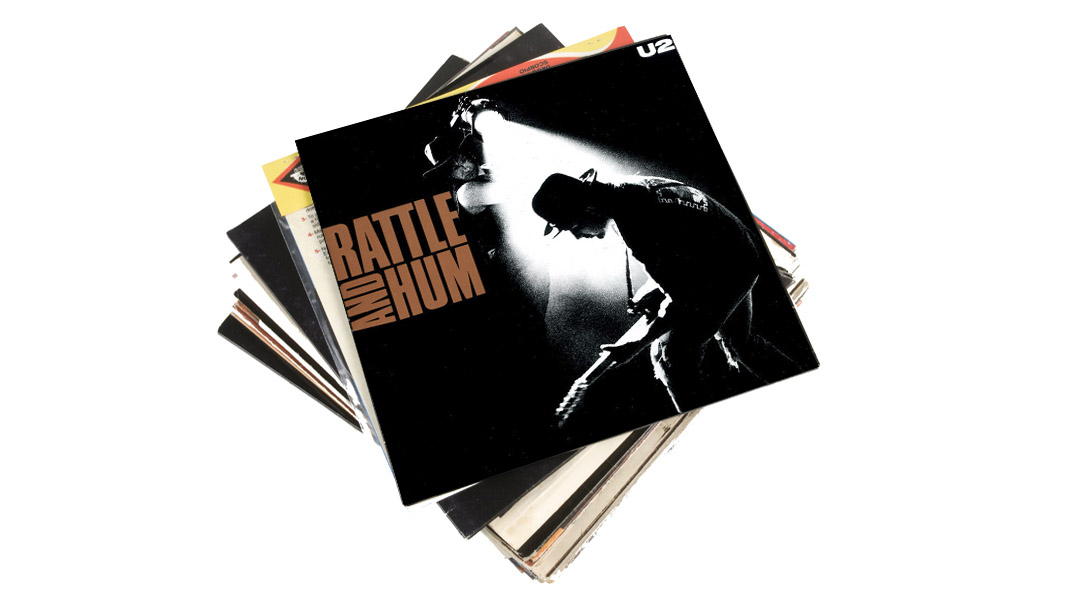
3. U2 - Rattle And Hum (1988)
“I'm pretty sure this album was the first time I actually learned lyrics, or at least showed an interest in vocals and took them as anything other than just a nice melody.
“In particular, the tracks When Love Comes To Town with BB King doing what he does best all over it, Hawkmoon 269 and Heartland, which always made me homesick for Holland where I grew up.
“It wasn't particularly Edge's playing that I liked, just that they were great songs – and although I did like his tone a lot, I was more into the vocals, structure and general Americana feel.”
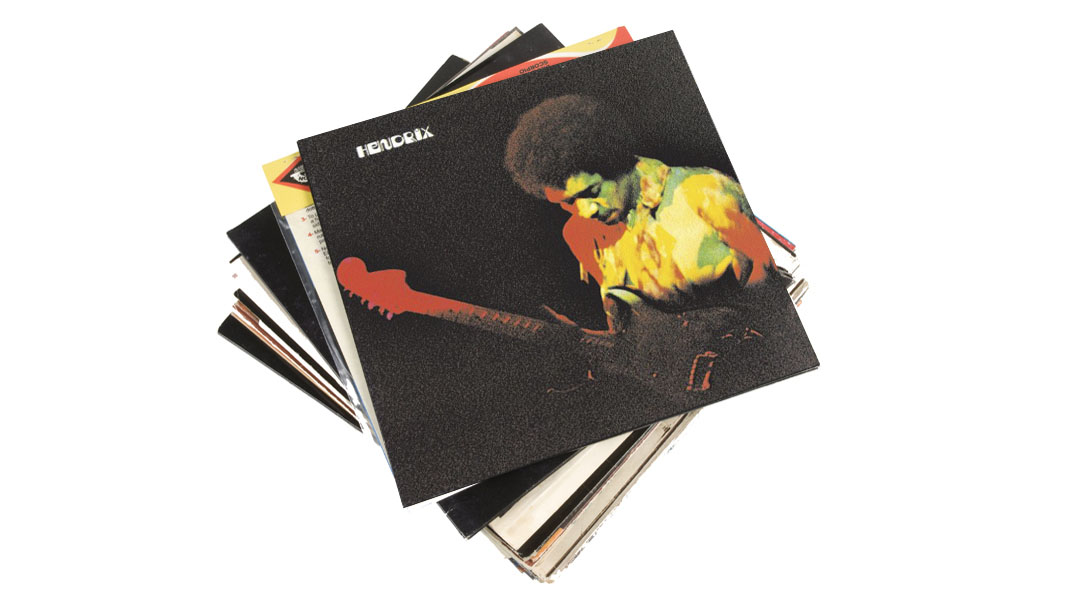
4. Jimi Hendrix - Band Of Gypsys (1970)
“I'm really glad that my introduction to Jimi was through this album; I really felt that the synergy of Jimi and Buddy Miles was a special thing, especially on tracks like Who Knows and Power To Love, which is an absolute powerhouse of a tune.
“I used to spend hours playing guitar along to Who Knows trying to work out the tuning until I realised years later that Jimi was just slightly flat of Eb.
“I also had various 'Best Of' Jimi albums, and obviously became a huge fan of his more popular work, but for me it was always Band Of Gypsys – there was one particular moment on a bus trip with my school to France when I must have listened to that album non-stop and could almost feel the notes.
“Later in my career, I had the amazing fortune to work with and become friends with the fantastic Eddie Kramer, who engineered a lot of Jimi's work. In a way, Eddie was responsible for developing me as a guitarist, and especially as a songwriter, through the countless hours in the studio with my band The Black Hand and later on some of my solo material.”
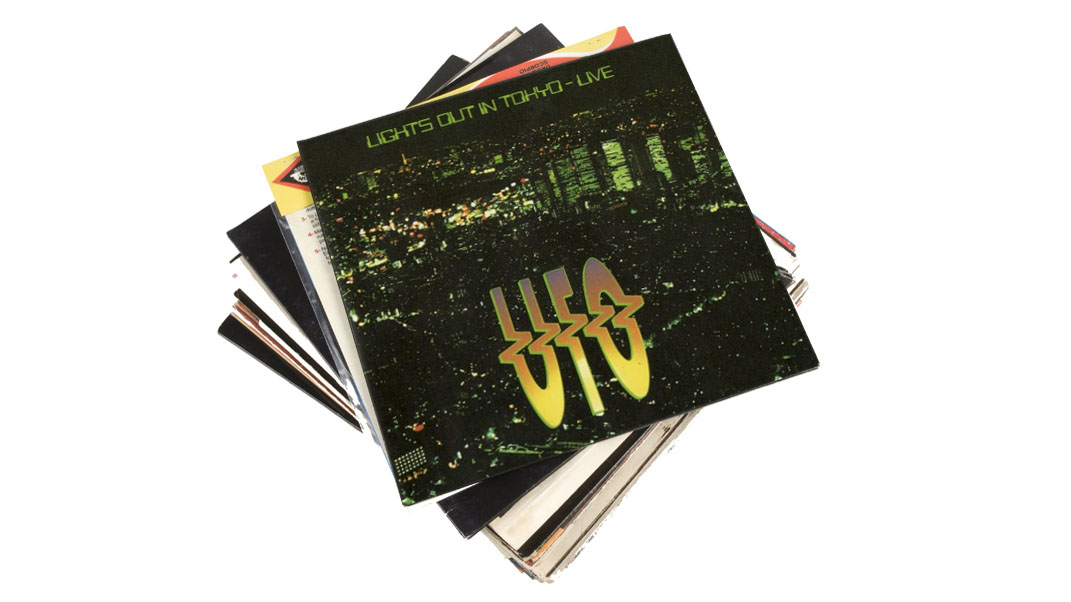
5. UFO - Lights Out In Tokyo: Live (1992)
“Never before had I heard guitar played in such an amazing way – harmony and melody united – such an awakening with the incredible raw and aggressive British sound that is UFO.
“Among the tracks on that album are a few killer tunes, but in particular, it's little pieces within every tune where something magical just happened with the vocals or the guitar tone – such a musical band and so full of control and almost an expressive 'anger'. I was a fan the second I listened to the tune Rock Bottom.
“Schenker had a really unique way of using pentatonic licks to make a beginner guitar player wonder what new exotic scale he was playing; it was his lead playing on that album and others that I soon collected, which really set me on my way to the Guitar Institute as a young student in London in the mid-90s.”
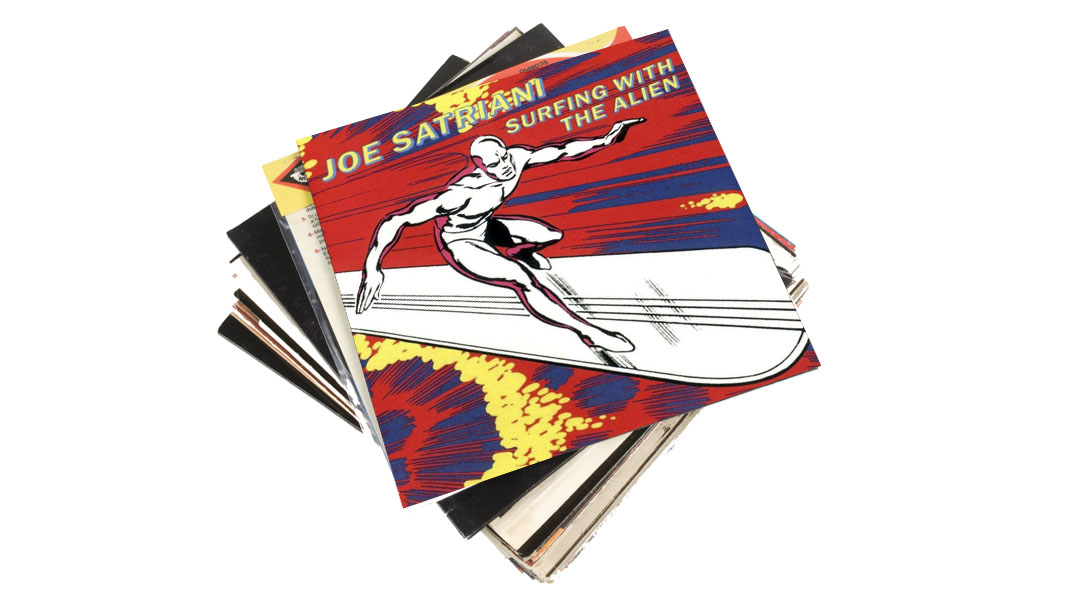
6. Joe Satriani - Surfing With The Alien (1987)
“At my first ever gig, I dedicated a song to my mum… and it was Always With Me, Always With You. Satch had such a huge impact on my playing that I can't even explain how many hours I spent trying to learn his licks by ear.
“In particular, Satch Boogie from a live TV appearance in Sevilla, Spain back in 1992 where Joe rips through the song with Nathan East on bass. He is so cool and his playing is so amazing; I was just changed forever.
“I think, as a player, the one thing that I really got from Joe was that blues could be modern and cool, legato became a focus and learning blues licks became a daily event. I once met Joe, I shook his hand and it looked strangely like mine, which made me happier than a kid at Christmas.
“He was exactly how you want your heroes to be: all the time in the world, he listened, he was real.”
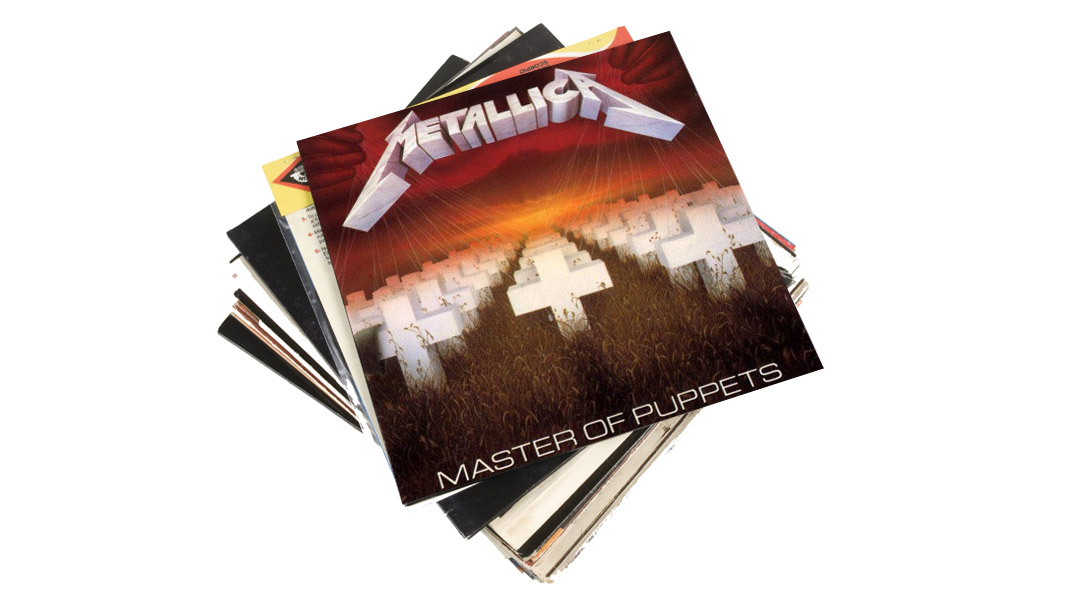
7 & 8. Metallica - Master Of Puppets (1986) & …And Justice For All (1988)
“I had a long relationship with Metallica, starting with the first time I ever heard them at a house party in Wiltshire when I was 16 – all I wanted to do was understand how they sounded so heavy yet intricate, detailed, articulate… it was a powerful sound, but beautifully formed.
“My best friend at the time, Alex, taught me my first ever chord while we were learning Seek & Destroy: 'You put your first finger here and your third finger down a string, and here, wherever your first finger points… that note is what the chord is called. It's called a powerchord.' Mind. Blown.
“For me, it was all about James's cyborg right arm, until the Black Album, and then, I really liked some of Kirk's solos, in particular The Unforgiven.”
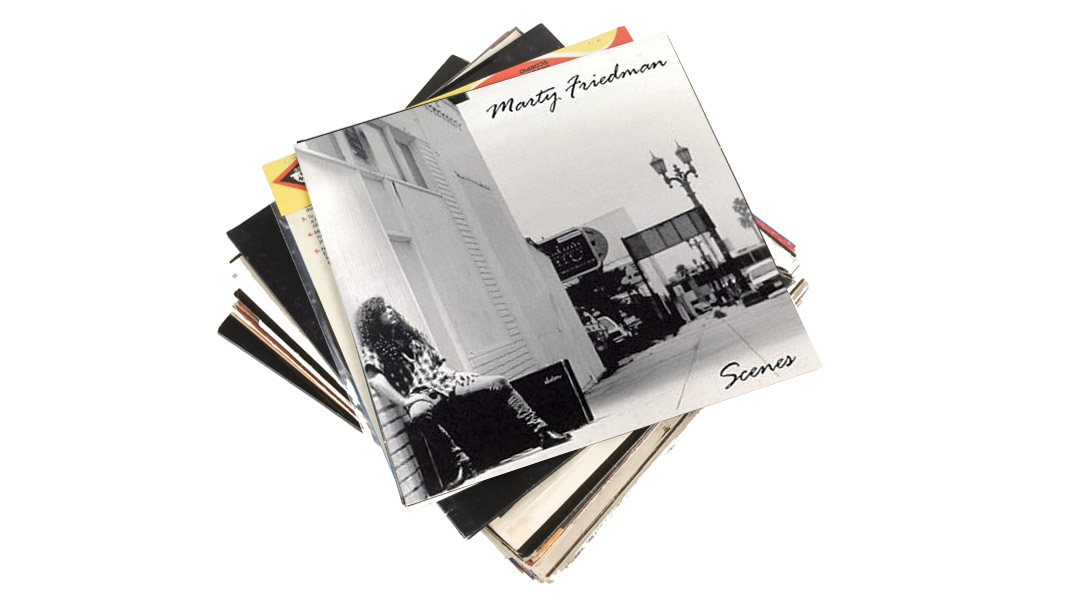
9. Marty Friedman - Scenes (1992)
“I was introduced to Marty musically through his solos on the Megadeth albums, and also, of course, with Cacophony – but it was on Scenes that I really fell in love with his incredible playing style phrasing and sense of musicality.
“The second track, Angel, was a revelation for me as the first time I ever actually understood modal application and how it flowed in and out of modes/blues.”
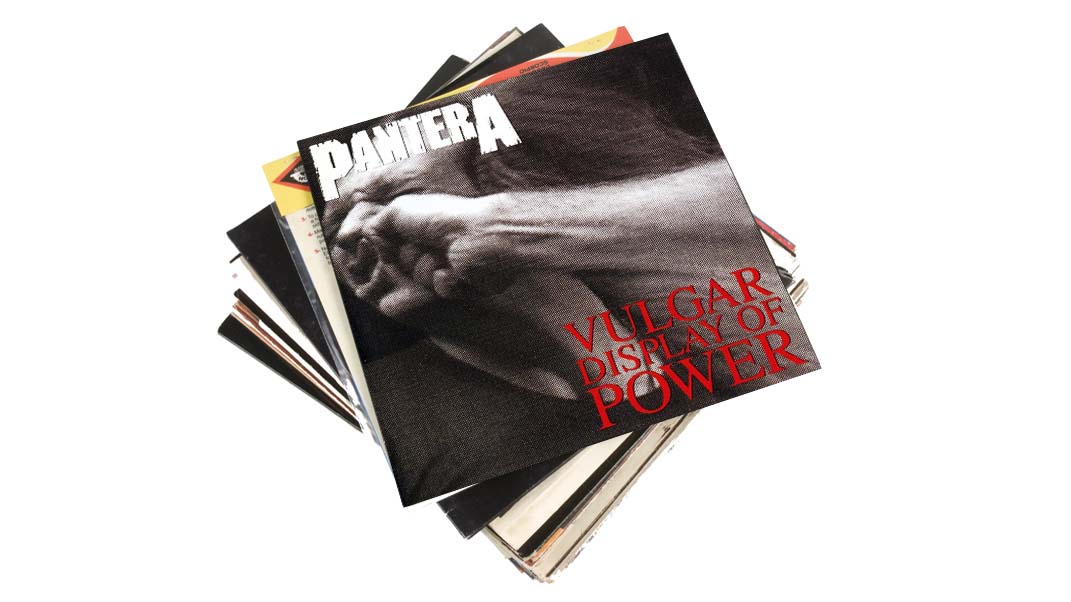
10. Pantera - Vulgar Display Of Power (1992)
“Yeah, it just took my fucking head off: so utterly brutal and amazingly emotional. A perfect blend of pioneering, virtuoso guitar playing the likes of which no-one had ever heard before, with an amazing rhythm section and a killer frontman.
“It was all too much for a 19-year-old kid! I learned all the riffs, failed at all the solos and ended up up with wrist cramp from down-picking to The Art Of Shredding when I later discovered Cowboys From Hell.
“I'm gutted that I never saw them live but so glad I found them in my teens.”
Don't Miss
Chapman Guitars ML-1 Pro review
Mike has been Editor-in-Chief of GuitarWorld.com since 2019, and an offset fiend and recovering pedal addict for far longer. He has a master's degree in journalism from Cardiff University, and 15 years' experience writing and editing for guitar publications including MusicRadar, Total Guitar and Guitarist, as well as 20 years of recording and live experience in original and function bands. During his career, he has interviewed the likes of John Frusciante, Chris Cornell, Tom Morello, Matt Bellamy, Kirk Hammett, Jerry Cantrell, Joe Satriani, Tom DeLonge, Radiohead's Ed O'Brien, Polyphia, Tosin Abasi, Yvette Young and many more. His writing also appears in the The Cambridge Companion to the Electric Guitar. In his free time, you'll find him making progressive instrumental rock as Maebe.
